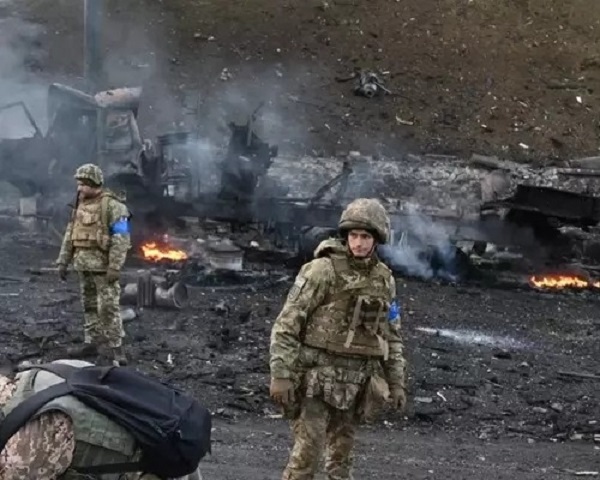United Nations, (Asian independent) Maximo Torero, chief economist of the Food and Agriculture Organization (FAO), has warned against a possible heavy toll on global food security posed by the ongoing Ukraine conflict.
To assess the potential impact on international food prices caused by a conflict-induced reduction in cereal and vegetable oil exports from Ukraine and Russia, simulations have been carried out, Xinhua news agency quoted Torero as saying to reporters at the UN Headquarters in New York.
On the basis of their already elevated baseline values, wheat price would increase by 8.7 per cent in a moderate-shock scenario and by 21.5 per cent in a severe-shock scenario, he said.
For maize, the increase would be 8.2 per cent in the moderate case and 19.5 per cent in the severe scenario. For other coarse grains, prices would rise by 7 to 19.9 per cent, and for oilseeds by 10.5 to 17.9 per cent, he said.
Globally, in terms of impacts on food security, in the moderate scenario, the number of undernourished people would increase by 7.6 million people, while this level would rise to 13.1 million people in the severe-shock setting, said Torero.
Moreover, additional upward pressure on fertilizer prices has stemmed from disruptions and high transportation costs following the imposition of export restrictions and due to sharp increases in bulk and container freight rates caused by the Covid-19 pandemic, he said.
International food prices had already reached an all-time high even before the conflict in Ukraine.
The FAO Food Price Index averaged 140.7 points in February, up 3.9 per cent from January, and 20.7 per cent above its level a year earlier.
In 2021, Russia and Ukraine ranked amongst the top global exporters of wheat, maize, rapeseed, sunflower seeds, and sunflower oil.
For its part, Russia also stood as the world’s top exporter of nitrogen fertilisers and the second-largest supplier of both potassic and phosphorous fertilisers, he said.
Overall, almost 50 nations are dependent on Russia and Ukraine for over 30 per cent of their wheat import needs. Of these, 26 countries depend on the two countries for over 50 percent of their wheat import needs, according to Torero.
Wheat is a staple food for over 35 per cent of the world’s population. The crisis represents a challenge on food security for many countries, especially for low-income, food import-dependent countries and vulnerable populations, he said.
In the wheat and meslin sector, Russia was the top global wheat exporter, shipping a total of 32.9 million tonnes of wheat and meslin, or the equivalent of 18 per cent of global shipments in 2021.
Ukraine was the fifth-largest wheat exporter in 2021, exporting 20 million tonnes of wheat and meslin and with a 10 per cent global market share.








